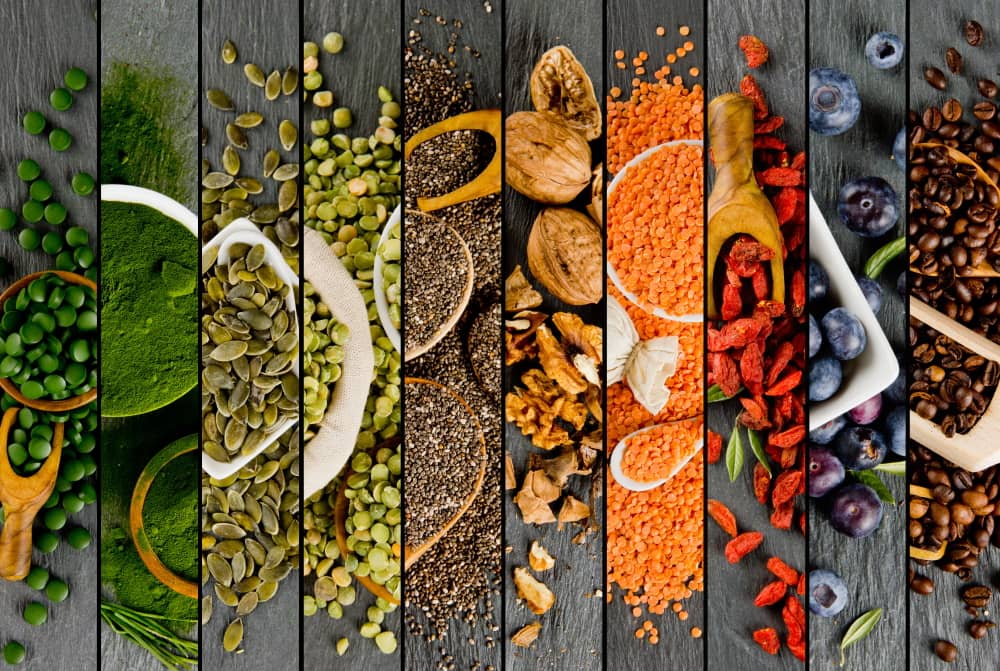
High Protein Diet Plans
The premise behind a high protein diet is that you have an overall energy deficit and this enables you to lose weight through fat burn. Does a high protein diet necessarily mean it's low carb? No, you must watch those carbs don't creep in.
If you indulge in a high protein diet (such as Protein Power), which is low in fat and carbs, you can lose weight if you then consume less energy than you use each day. In reality it is not the high protein diet that can assist you with losing weight but instead simply the reduction in calories compared to the amount used up each day.
Eating More Protein
Protein consumption can actually help to suppress your appetite. Therefore, you consume fewer calories and essentially lose weight. Much like eating fibre, high protein diets can induce the feeling of fullness so you're less likely to feel hungry, reducing your desire for eating.
This can also help you to avoid snacking which is often a cause of increased calorie consumption in your daily diet.
Helping Your Metabolism
Metabolism is also increased thanks to eating proteins such as lean meat, fish, poultry and some dairy products. This means that these foods assist with weight loss due to the increase in calories being burned.
The problem once again though is the lack of a balanced diet. Without consuming sufficient quantities of protein, fat and carbohydrates as well as fibre, you tend to limit the amount of essential vitamins and minerals you receive through your diet. If you don't take multivitamin supplements to compliment your diet, you may suffer from such nutrient deficiency diseases as osteoporosis and anaemia.
Such diets are therefore highly useful for achieving sustainable weight loss results. However, to ensure you are eating healthily is not always enough. To maintain weight loss and control on a permanent basis you need to establish sensible targets and you shouldnt expect instant results.
The best way to achieve your weight loss targets and maintain them is to combine healthy eating with regular physical activity. This way, you can get the results you're after more quickly and most importantly, in a sustainable way.
You should consult medical advice and ensure you are eating the right amounts of the right foods and that your exercise regime is sensible and catered to suit your personal requirements.
Is High Protein Just a Fad?
Over the past few years, high protein diets have been the biggest weight loss fad. While they vary in the details, most recommend that you get from between 30 to 40 per cent of your calories from protein.
This also means that many carbohydrates, such as sugars, pastas, breads, cereals and potatoes, are either limited or excluded altogether.
The Positives Of This Diet
There are good reasons why a high protein diet can be effective. The biggest advantage of a high protein diet is that by eliminating or severely restricting your intake of carbohydrates, particularly refined carbohydrates, enables you to better control your blood sugar and insulin levels
Refined carbohydrates give you a rapid increase in blood sugar, which results in raised insulin levels. Insulin is a hormone that takes sugar from your blood, either giving it to your cells to use as energy, or storing it as fat. The more insulin is released, the sooner your blood sugar dips, the faster you feel hungry again.
On the other hand, the high protein diet appears to stimulate protein synthesis in muscle. This reduces muscle loss while slimming, and eating less carbohydrates reduces insulin output, which allows the body to burn fat.
Are There Downsides?
Most of the bad press for this type of eating plan comes from those programmes that encourage eating any type of protein the problem is that this can also dramatically increase your fat consumption, which is not recommended.
The solution is to focus on proteins that are lower in fat, particularly saturated fat, such as fish, poultry, and the various beans that contain protein. In addition, carbohydrate consumption should be focused on quality sources such as fruit vegetables and whole grains, rather than refined white sources such as sugar, white bread, pasta and potatoes.
Our Opinion
Provided you ensure a balanced intake of vitamins and minerals, this can be a successful route to weight loss. It relies on your consuming less calories than you use up each day. Simple really.
Most Popular
- › Best Gym Equipment for Weight Loss
- › The GI Diet Plan
- › Activities for Getting Fit
- › What is Healthy Weight Loss?
- › Getting Your Balanced Diet
- › Personal Training Workouts
- › Types of Diets & Weight Loss Programs
- › The Risks of Dieting
- › Artificial Sweeteners as a Sugar Replacement
- › Exercise Helps Weight Loss
You may also be interested in...
Can Online Diet Plans Work?
It's a question that's often asked. Can online diet plans really work when you're trying to slim and needing some help? Why not read our simple article that may help you decide whether they are right for you.A High Fibre Diet
Look for what a high fibre diet is and read our simple guide. From high fibre foods through to recipes and tips slimming.co.uk has everything you need.Diet Plans For Children
Finding the right diet plans for your children is crucial. If you aren't sure what to do then click on slimming.co.uk and get all the information you need!Can You Eat To Diet?
Find out more about how healthy eating can help your diet. From the balance in foods, the portion sizes and organic vs frozen.Which Diet Plans?
Choosing which diet plans will suit you is a minefield. Why not check out our diet plan ideas and advice for dieting plans that are sustainable and tips on the ones that aren't!
